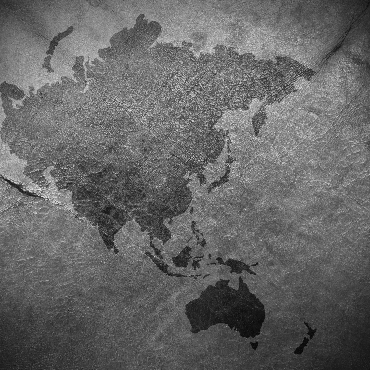VIETNAM'S BOOMING CHINA TRADE
Amid increasingly adversarial relations with the U.S., China is shoring up its economic partnerships in the Indo-Pacific. A key target in this regard has been nearby Vietnam. Chinese exports to the country soared 18% in 2024, with Vietnam edging out Japan as the PRC's third-largest export market. The trend, Bloomberg reports, is part of a larger "rerouting of trade" as supply chains shift to avoid tariffs threatened by the incoming Trump administration. Indeed, the overwhelming majority of commodities that have seen spikes in exports to Vietnam are electronic parts such as memory components, processors and LCD modules. That, industry watchers say, reflects an effort by Chinese firms to skirt likely future economic pressure on the PRC and continue their commerce. (Bloomberg, January 13, 2025)
[EDITORS' NOTE: While the trend is trade-related, it nonetheless has significant geopolitical ramifications. Washington's relations with Hanoi have warmed appreciably in recent years, but Vietnam's growing profile as a hub for Chinese commerce could complicate that thaw as the new White House contemplates how to apply economic pressure to the PRC.]
MORE PRESSURE ON MANILA
In recent years, China's increasingly assertive regional behavior has squeezed the Philippines and eroded the country's sovereignty, both on land and at sea. That trend has continued. Philippine officials were recently forced to table a scientific survey in the South China Sea in response to "harassment" from Chinese naval vessels and coast guard deployments. According to the Philippines Coast Guard, vessels of the country's Bureau of Fisheries and Aquatic Resources "encountered aggressive maneuvers" from a contingent of Chinese ships en route to Sandy Cay, which lies near the Philippine-occupied Thitu Island. For its part, China has defended the action by invoking "indisputable sovereignty" over the waters, which it claims in contravention of Manila. Meanwhile, Philippine law enforcement authorities arrested five Chinese nationals in January, after the individuals were caught carrying out "illegal intelligence gathering" on facilities housing Navy and Coast Guard assets. (Radio Free Asia, January 26, 2025; USNI News, February 3, 2025)
NOW, A HELPING HAND FROM MOSCOW
This past Fall, Russia's ongoing military offensive against neighboring Ukraine received a shot in the arm with the arrival of thousands of North Korean troops, who augmented Russian military forces. Now, it seems, the Kremlin is returning the favor. According to a new report from Radio Free Asia, North Korea is now building a new battleship at its Chongjin Shipyard – and receiving assistance from Russia in expanding its technical capabilities. Satellite imagery reviewed by SI Analytics, a Seoul-based, AI-driven satellite imagery analysis service, "suggests Pyongyang is strengthening its conventional naval capabilities in collaboration with Moscow" following the recent conclusion of a new military cooperation agreement between the two countries.
The implications are potentially profound. "The construction of a second large warship suggests an unprecedented expansion of North Korea's naval capabilities," SI Analytics says. These naval capabilities, if rendered operational, "will pose a considerable challenge to the military balance on the Korean Peninsula and the combined naval forces of South Korea and the United States." (Radio Free Asia, February 20, 2025)
BEIJING STRENGTHENS ITS GRIP ON THE PACIFIC ISLANDS
As strategic competition between China and the United States has intensified, attention has naturally gravitated to the Pacific Islands, an area of profound geopolitical importance and pronounced interest on the part of the PRC. China has taken a significant step forward there, signing a new comprehensive strategic partnership agreement with the Cook Islands. Details of the deal are shrouded in secrecy, but the arrangement has raised worries in nearby New Zealand, which maintains a measure of sovereignty and oversight over the Islands. "We have concerns about the Chinese state military apparatus penetrating deeply into a country that is part of the New Zealand Realm," one government official in Wellington has confirmed.
For their part, China and the Cook Islands have denied that the new deal contains a security dimension. However, the areas expected to be covered by the new agreement – including deep-sea mining and strategic infrastructure – would nonetheless confer a significant advantage to the PRC, and raise serious security concerns for New Zealand. (Washington Post, February 14, 2025)
Want these sent to your inbox?
Subscribe

